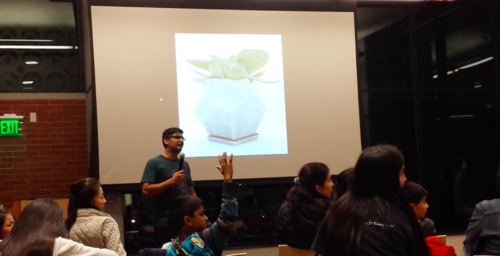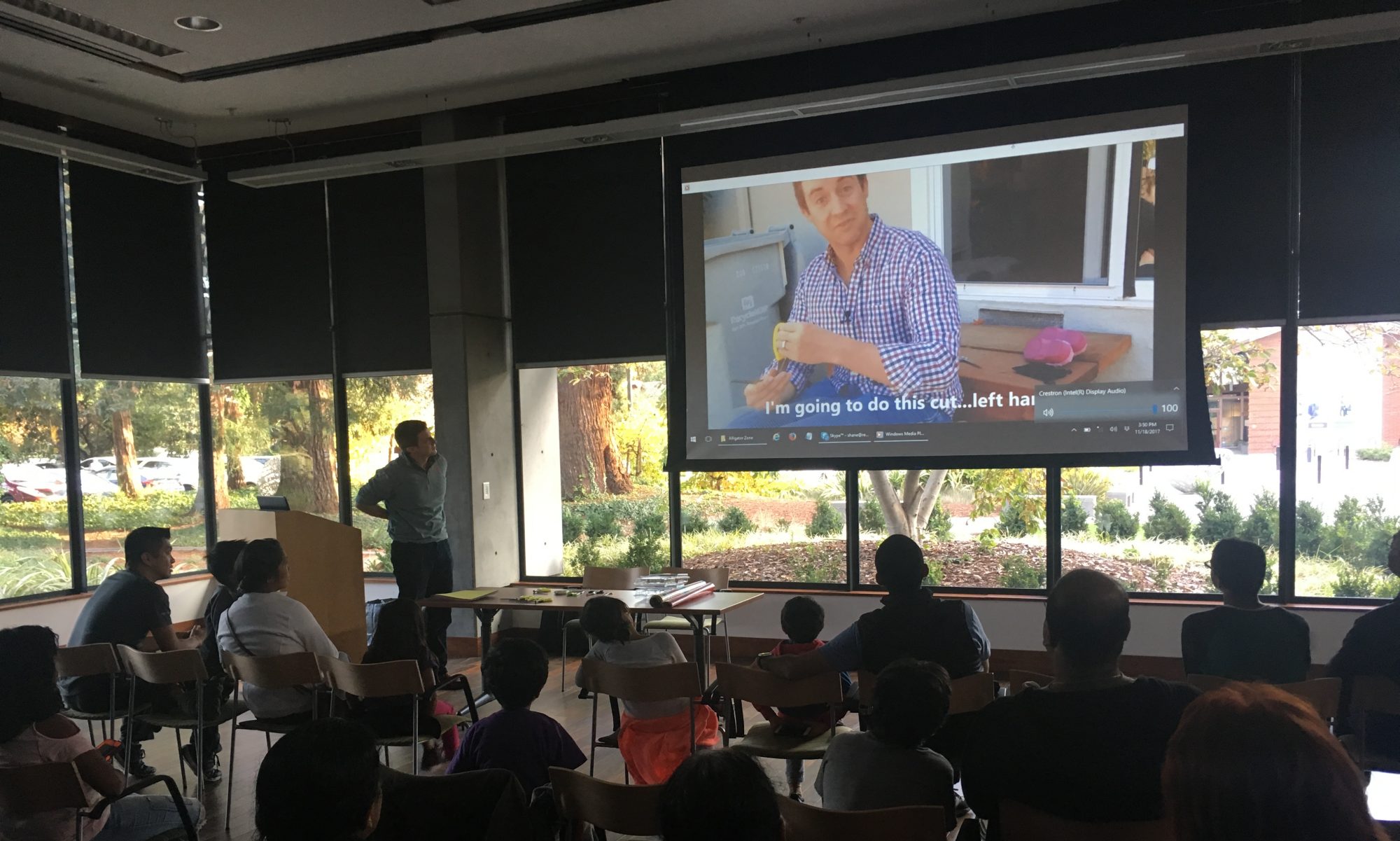This guest blog post by Vinit Patil, CEO, MeetRibbon, which first appeared on March 6, 2015, is being republished with his permission because it shares timeless wisdom with startup entrepreneurs.

They’re candid. They have a ton of questions. They will make you sweat. And they have a huge influence over the entire adult demographic. Take a guess.
Kids. Yes, those darn adorable kids.
I had the honor to pitch The Pricerie at the City of Palo Alto’s Rinconada Library where parents brought their kids to hear startup founders talk about their business. This is a program called AlligatorZone started by Ramesh Sambasivan where “Kids meet cool startups”. That night, it was Jon Li, founder of Vibin Photo Notes and me.
Jon went first. As I watched Jon present I grew more nervous. The kids between ages 5–12 were pretty straight with their questions.
“I tried downloading your app” said one of the kids. “It says 99 cents. I thought you said it was free.”
“You might be looking at a different app,” said Jon, “There are plenty of photo note apps. Look for Vibin Photonotes.”
“OK, how are people supposed to find it?” said the kid.
Good question.
How are people supposed to find Vibin Photo Notes. What’s going to be Jon’s iTunes store discovery strategy. Something for Jon to think hard about.
I was next. Here are my takeaways from the entire experience.
Find how you can connect
They are not interested in your business jargon. So find common kid ground. Jon for example asked “who likes to take pictures? And then used a lemonade stand to explain the affilitate model. Brilliant.
My turn. The Pricerie is a pricing service. Not a lot kids care about pricing.
I had to boil it down to one question that could resonate with all kids.
“Who likes to draw?
For VCs it might be a different question. Who wants to make money? Or who wants to change the world? Who wants to invest in healthcare?
But for kids it was about drawing. I built on that.
Keep your Pitch Quick and Simple
I started telling the kids “Well someday you might grow up and get really good at drawing. You might put it on a t-shirt. People might like your t-shirts and ask how much you are selling them for. You might not have a clue how to answer that.
Hence the Pricerie. We’ll pair you with store owners who will help you figure out how much to sell it for.”
Kids are smart, restless and fearless. No place to hide.
The experience forced me to state the problem in the most simple and relatable form. I’m sure no VC one ever heard a pitch and said this is too simple. Can you complicate it just a little?
Answer follow up questions in short, easy to understand sentences
There’s always that temptation to to give a long detailed answers. Kids have no patience for that. They’re already thinking about their next question. Similarly, VCs have their phones and email on their phones. Your answer needs to be shorter and more interesting than what’s on their phones.
I tried my best to keep all my answers down to a sentence or two.
For example:
Question: Can makers raise of lower their price if they don’t like your price? Answer: Yes. It’s your product. Ultimately you get to decide. This is just a validation from a trusted source.
The kids also understand big words like validation, so there’s no need to dumb it down.
Be Honest
Kids won’t hesitate to call out your BS. So don’t try to act bigger or smarter than you are. If you are not making any money, tell the truth. If they ask about how many users you have, tell the truth. If they ask how you are going to charge, tell the truth.
I was caught off guard when asked how the community prices things versus retailers. We just didn’t have enough data to give a really informed answer. I said I don’t know, I’ll have to check on that but my guess is the new members of the community price too low.
Normally adults, unless they are reporters, can be a bit reserved. The flurry of questions from the kids emboldened the adults, who in turn also asked a lot of questions.
Whew!
Next time I plan on pitching a VC, I’ll pitch it to my kid first.
Vinit Patil, currently CEO of MeetRibbon, presented a previous venture, The Pricerie, a pricing service for makers, of which he was co-founder, and artist partner at the junk rescue initiative The Whiteout. This guest post, originally written by Vinit on March 6, 2015, has been republished by AlligatorZone with his permission. MeetRibbon is addressing a critical gap in the trade show and showroom industry—helping physical events embrace the power of a modern, multi-vendor platform to run their e-commerce year-round.




